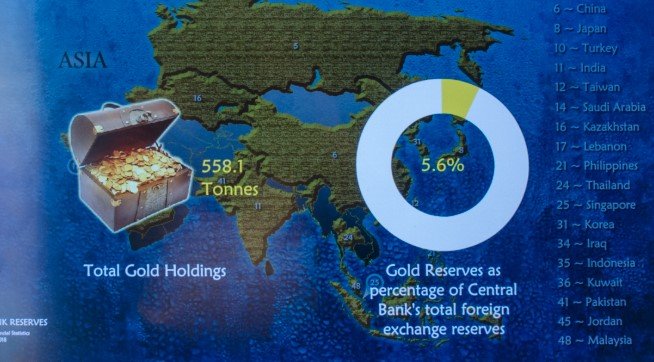Central Bank hits $22 billion mark as Chamber of Commerce hails new milestone
Jordan’s foreign currency reserves just hit an all-time high — and the ripple effect is already being felt. The Central Bank’s latest figures show reserves hitting $22.02 billion by the end of March 2025. That’s enough to cover the Kingdom’s imports for more than eight and a half months — and it’s not just a number. It’s a signal.
According to Firas Sultan, the Jordan Chamber of Commerce’s financial and banking sector representative, this new record is a loud vote of confidence in the country’s economic backbone.
Reserves That Tell a Bigger Story
Sultan didn’t mince words in his Tuesday statement. These reserves, he said, are more than just a cushion. They’re proof that Jordan’s economy has the muscle to withstand pressure — both domestic and global.
In his words, “This level of reserves affirms our economy’s strength, our ability to meet obligations, and the soundness of our monetary policy.” And that’s not just for show. The reserves support the dinar, stabilize markets, and keep inflation at bay.
Let’s break that down a little.
-
Reserves are held in major currencies — U.S. dollars, euros, pounds, yen.
-
They’re used to pay debts, manage currency fluctuations, and fund imports.
-
The current $22 billion covers nearly nine months of imports — well above the IMF’s comfort benchmark of 3 months.
Not Just Stability, But Momentum
The Chamber of Commerce points to the reserves as a reflection of something deeper — that Jordan’s economy isn’t just stable, it’s growing.

The government’s recent economic reforms and rollout of the Economic Modernization Vision seem to be landing. Business regulations have loosened. Investment incentives are up. Infrastructure spending is flowing. And the private sector? Slowly but surely, it’s responding.
Sultan credited this progress directly: “This didn’t happen by accident. It’s the result of deliberate efforts by the government and central bank.”
Investors are Paying Attention
For investors — local and foreign — the reserves are like a trust barometer. When they’re strong, investors breathe easier.
A quick glance at the financial flows in Q1 of 2025 shows:
| Indicator | Q1 2024 | Q1 2025 | Change |
|---|---|---|---|
| Foreign Direct Investment (FDI) | $395 million | $520 million | +31.6% |
| Portfolio Investment Inflows | $180 million | $245 million | +36.1% |
| Remittances from Overseas | $906 million | $998 million | +10.1% |
The link? Confidence. Foreign reserves give investors reassurance that Jordan can handle external shocks — whether it’s oil price swings, geopolitical pressure, or supply chain snags.
More Breathing Room for Local Markets
It’s not just about foreign cash. Local businesses feel the impact too.
Imports and exports depend heavily on dollar access. With strong reserves, the Central Bank can ensure smooth transactions, prevent dollar shortages, and keep trade flowing.
As Sultan noted, “The availability of foreign currency directly stabilizes the import-export cycle.” It also reduces pressure on prices, which helps households and small businesses alike.
Even sectors like construction and tourism — usually first to feel currency strain — are catching a break.
Monetary Policy: Holding the Line
Jordan’s Central Bank has earned a reputation for being cautious but effective. This record-high reserve is partly a result of those steady hands.
In 2024, they kept interest rates aligned with global trends, managed inflation, and slowly rebuilt reserves through smart borrowing and a careful grip on public spending.
Sultan highlighted this exact point — that the reserves reflect “prudence and responsiveness” in policy. Meaning: the Bank didn’t just react. It planned. And it worked.
Still Work Ahead, But Signs Look Good
No one’s throwing a parade just yet. Challenges remain — unemployment, regional instability, debt servicing. But the signs are encouraging.
The reserves are a bit like the fuel tank of a car. If it’s full, the journey ahead seems more manageable. Jordan’s economy has its foot on the gas, and for now, it’s not running on empty.
